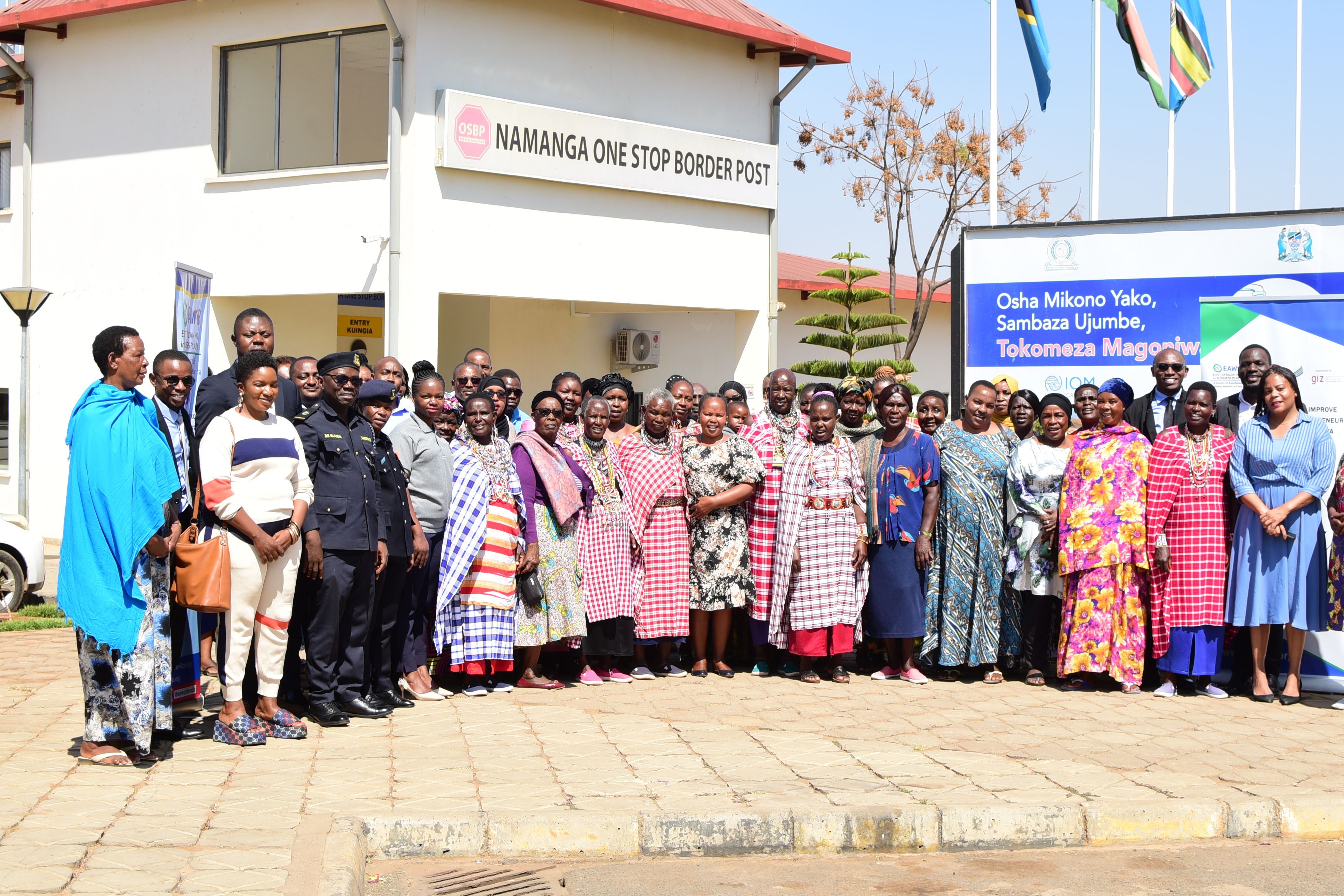Lack of information on trade regulations is one of the key challenges faced by women-cross border traders in the EAC region. Now, as part of the EAC regional integration process, a multi-stakeholders initiative is tackling this issue and more.
From 4 to 15, September, the East African Women in Business Platform (EAWiBP), in partnership with GIZ via the “Support to East African Integration Programme” (SEAMPEC II) and in collaboration with the East African Business Council (EABC), conducted trade facilitation forums at the Namanga, Malaba and Busia One Stop Border Posts (OSBPs). The objective was to bring together cross-border women traders and representatives of border agencies to discuss challenges facing women traders and chart out policy recommendations to facilitate free movement of goods across the EAC region and beyond.
Additionally, the forums aimed at creating awareness, developing capacities and deliberating on the efficiency and impact of trading instruments such as the EAC Simplified Trade Regime (STR), EAC tariff treatment and deliberate on what AfCFTA trade instruments would be ideal for women cross-border traders to trade more easily and boost both intra-EAC and continental trade.
The forums facilitated a public-private dialogue between the women cross-border traders and government agencies. The cross-border traders were not only sensitized on the STR of the EAC and AfCFTA, EAC and AfCFTA Tarriff and cross border trade challenges but also on initiatives undertaken by the border agencies in facilitating cross-border trade. The border officials presented their role in the implementation of the STRs as well as the challenges that they face in facilitating cross-border trade.
During the trade facilitation forum at the Namanga OSBP, held from 4 to 5 September, a capacity development workshop for women entrepreneurs was conducted. The workshop was attended by 60 women and youth SMEs from Kenya and Tanzania.
Mr. Lameck Wesonga, Technical Advisor, GIZ, highlighted that women formed 80% of the cross-border traders in the region. He noted that the SEAMPEC II Programme has partnered with EAWiBP to develop capacities through training and technical assistance for businesses and government agencies to help them comply with trade regulations and facilitate women traders participation in regional and continental trade. He urged the women cross-border traders at Namanga to take advantage of the capacity development opportunity and equip themselves with the knowledge and skills necessary for trading in the region and AfCFTA.
The Regional Coordinator of EAWiBP, Ms. Janice Kimaro, stated that information asymmetry is still a major challenge facing small-scale traders in the EAC region. She said that small-scale traders in the EAC region were often at a disadvantage when it came to trading under the EAC STR and the AfCFTA because they lacked the information and resources they needed to navigate the complex trade rules and regulations. She concluded that the new capacity development initiative is a step towards addressing this challenge and helping small-scale traders take advantage of the opportunities offered by the EAC Bloc and AfCFTA.
Mr. Amedeus Mzee, a representative from the Ministry of Foreign Affairs and East Africa Cooperation, Tanzania, applauded the establishment of border markets, which he said play a pivotal role in streamlining and enhancing cross-border trade. These markets serve as crucial hubs where traders from neighboring countries can come together to exchange goods and foster economic cooperation. They not only facilitate trade and strengthen ties between communities on either side of the border but also help reduce trade barriers and promote economic growth in border countries. In essence, the creation of such markets is a significant step towards harnessing the full potential of cross-border trade for the benefit of both nations involved.
The representative noted that the recommendations that have been highlighted during the discussion will be presented to the respective government ministries and departments for action. This commitment underscores the government's dedication to supporting and nurturing cross-border trade.
The key recommendations from the workshop were:
- The governments of Tanzania and Kenya were urged to simplify and improve the passport procedures to enable women cross-border traders to easily access the ordinary passport.
- The Border Customs Departments in Tanzania and Kenya at the border of Namanga were urged to conduct regular awareness creation on the STR list of priority goods to women cross-border traders.
- The governments of Kenya and Tanzania to conduct regular public-private dialogue as a mechanism of providing updates on the progress of the issues raised by the women cross-border traders at Namanga.
Find more information on SEAMPEC II and EAWiBP Partnership here.
Find more information on SEAMPEC II here.
